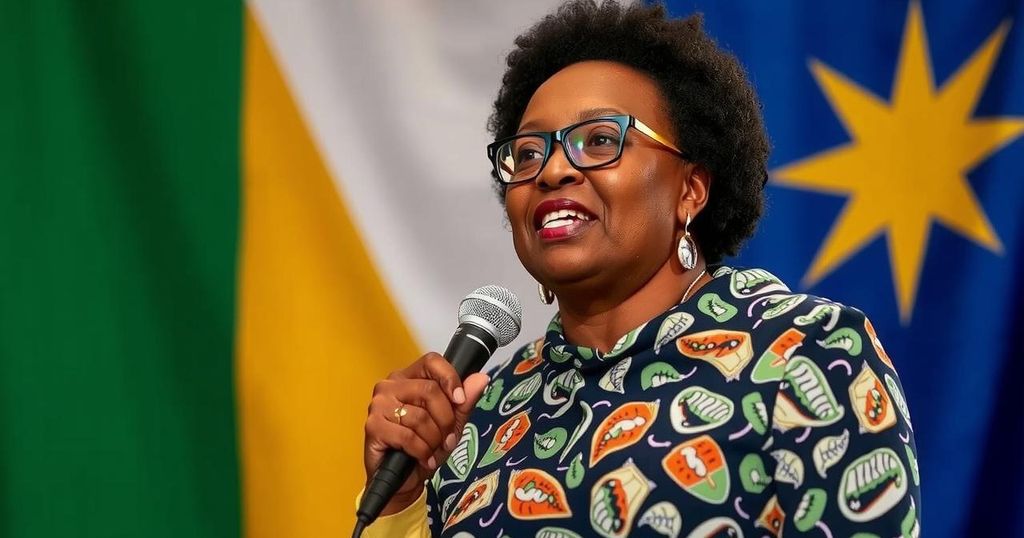Namibia Elects First Female President: Netumbo Nandi-Ndaitwah’s Historic Win

Namibia elected its first female leader, Vice President Netumbo Nandi-Ndaitwah, with 57% of the vote in the presidential election held on November 27, 2024. Her victory follows the death of President Hage Geingob. However, opposition parties are challenging the election results, citing significant administrative issues during the voting process.
Namibia has marked a historic milestone by electing its first female President, Vice President Netumbo Nandi-Ndaitwah. Declared the victor of the recent presidential elections held on November 27, 2024, she secured 57% of the votes against expectations of a potential runoff. Nandi-Ndaitwah, a prominent figure in the long-ruling South West Africa People’s Organization (SWAPO), has been part of Namibia’s political landscape since its independence from apartheid South Africa in 1990. Following the death of President Hage Geingob earlier this year, she was promoted to Vice President, further paving her path to leadership.
Despite her victory, the electoral process faced significant challenges. Opposition parties have raised concerns over technical difficulties encountered during the election, including a shortage of ballot papers, which led to an extension of the voting period until Saturday. These parties have deemed the extension as illegal and plan to contest the election results in court, asserting that the legitimacy of the election is now in question.
Nandi-Ndaitwah’s election is seen as a pivotal moment for gender representation in politics, as she joins other female leaders globally in breakthrough roles. Amidst the ongoing political tensions, her commitment to unity and progress remains essential for Namibia’s future.
In conclusion, Netumbo Nandi-Ndaitwah’s ascension redefines Namibia’s political landscape, underscoring the necessity for vigilance in electoral integrity while simultaneously celebrating a significant advancement for women in leadership. The challenges ahead will determine not only the pathway of her presidency but also the stability and democratic health of Namibia’s political environment.
Namibia’s journey to democracy began with its independence from apartheid South Africa in 1990, after a decades-long struggle led by various independence movements, including the South West Africa People’s Organization (SWAPO). For over three decades, SWAPO has maintained a dominant political presence, with multiple elections being conducted. However, concerns over electoral integrity have often surfaced, particularly regarding the management and transparency of the voting process.
The election of Netumbo Nandi-Ndaitwah as Namibia’s first female leader symbolizes a significant achievement in the fight for gender equality in politics. Despite the triumph, it is critical that the legitimacy of the electoral process be upheld to maintain public confidence in democratic institutions. The resolution of the disputes raised by opposition parties will be vital in setting the tone for her presidency and future elections in Namibia.
Original Source: apnews.com






